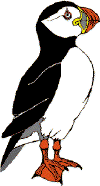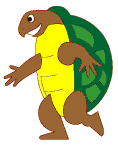

Grade Level: Middle School
Basic Concepts: Group collaboration, appreciation of literature, critical thinking
Content Areas: Language Arts, Science, History
Time: 1st day- 2 hours, 5 additional days 1 hour each, 7th day-presentations 1 hour Total hours = 8 hours
Objectives
Activity
Materials:
Phase 1: Have the class brainstorm the advantages to reading a book in small groups. Lead into the concept of literature circles- their opportunity to do the very thing they were just discussing. Define literature circles, and their basic organizational structure. Make sure the students understand the responsibilities of the various roles. Give the students a list of books from which they can choose. The chosen book will decide the small group in which the students will be working. (See the attached sheet for our suggested book list).
Phase 2: The students will meet in the appropriate groups to discuss the following items. (The attached handout is an aid to help the groups get organized).
* They should discuss the distinct roles in the group, and devise a system of who will begin in the roles, and how they are going to rotate the roles each time they meet.
* They should discuss the amount of reading the group has to do every night to finish the book on time and get ready for the presentation.
Phase 3: The students should be given time the first day to start reading the book after their organizational activities are completed.

Continuing Procedure
Literature circles should be given about an hour of time each day to discuss the book and to have time in class to read. Attached are guide questions that can be handed out to the students each day to give them suggestions of a certain aspect of the book to talk about. Oftentimes the students just need ideas to get them started in their discussion. Each day take 10 minutes after the groups meet to discuss how things are going, what is working and what is not.
During the sixth meeting, the groups should be done with their books and given time to work on their presentations.
Assessment: The teacher can observe each group, using the criteria in the Observation Rubric. During the reflection time the teacher can offer the feedback he/she has to offer based on the written observations. This feedback can help the groups improve as they work together throughout the week. The groups can also talk with one another and offer solutions for problems that some of the groups might be experiencing.
Evaluation: The groups and individual students are considered successful if they receive 3s or 4s on the observation rubric. The end product of the experience will be the presentations. Each student will be evaluated individually, and the group as a whole will be evaluated. The groups and the students will be considered successful if they receive 3s or 4s on the presentation rubric. (See the attached presentation rubric).
Discussion Leader: This person encourages all members to participate in the group's discussion and keeps the group on task.
Researcher: This person looks up any unusual or new vocabulary words that are difficult to comprehend in context.
Recorder: This person records the main topics the group discussed for that day and any conclusions that were made.
Illustrator: This person creates a visual image of an important event in the book.
Passage Master: This person marks important passages that the group may want to discuss the following day.
*NOTE It is very helpful to give each group a copy of the different roles so they can refer back to it.
*Note: All of the books we have selected contain two important qualities: they all connect to our ocean unit, and they all have themes that deal with important adolescent issues.
Dorris, M. (1992). Morning Girl. Hyperion Paperbacks: New York.
This book is written at a higher reading level. The book itself appears to be quite short, however, the language is very abstract. This book is a good choice for adolescents to read because one of the themes of the book is self-reflection.
O'Dell, S. (1960). Island of the Blue Dolphins. Bantam Double Dell Publishing Group Inc.: New York.
ISBN# 0-440-43988-4
This is a suspenseful book about a girl who was left alone on an island for years. It is a great story for adolescents to read because there is a sub-theme in the book about self-discovery. We also liked the book because the main character is female, and the book depicts her as very powerful.
O'Dell, S., Hall, E. (1995). Venus Among the Fishes. Bantam Double Dell Publishing Group Inc.: New York. ISBN# 0-440-41175-0
This story is really unique because it is written from the perspective of the marine life. The narrator is a dolphin named Coral. This book also deals with self-reflection and maturing.
Salisburg, G. (1992). Blue Skin of the Sea. Bantam Double Dell Publishing Group Inc.: New York. ISBN# 0-440-21905-1
This book describes the stages of adolescence as a young boy goes through them living on the Hawaiian Islands. These stages are the mirror image of phases that the majority of adolescents go through. It's a realistic story that would help adolescence to think about some of the issues that they are faced with.
Sperry, A. (1940). Call it Courage. Scholastic Inc.: New York. ISBN# 0-590-40611-6
This book describes a teenage boy facing up to his worst fear, the ocean. He is trying to overcome this obstacle in is life so that he can live at peace with his family and his tribe. This is a great adventure story. It's a shorter book that would benefit some students.
Verne, J. (1962). 20,000 Leagues Under the Sea. Bantam Books: New York. ISBN# 0-553-21252-4
This is a great adventure story. Students who love science fiction would enjoy this book. There are various versions of this story available, so the teacher can choose the one that is at the appropriate level for the class.
Whittlinger, E. (1995). Noticing Paradise. Houghton Mifflin Company: Boston. ISBN# 0-395-71646-2
This book contains good information about the conservation issues in the Galapagos Islands. There are themes that bring out important social issues that adolescents face.
1. Devise a system about the distinct roles in the group. Who will start off in what role?
How are you going to rotate the roles each time you meet?
What are you going to do if someone does not complete his/her role?
2. What is the amount of reading to be done everyday in order to finish the book and get ready for the presentation?
Should everyone read the same amount every night?
What if people are behind in reading or ahead?
Main Focus: Setting and Narrator
1. Where does the story take place?
2. When did the story take place? (time period)
3. What were the clues?
4. Do you think this setting is important to the story?
5. Would you change the setting at all?
6. Who is the narrator of the story?
7. Would the story change if someone else was telling it?
Guide Questions
Main Focus: Mood and Suspense
1. What is the general mood or feeling created by the story?
2. How does the author create this mood?
3. How does the story make you feel? Why?
4. Does the author succeed at creating suspense in the story?
5. What does the author do to make you keep reading?
6. What do you predict is going to happen in the next chapters?
Guide Questions
Main Focus: Changing Characters
1. Are there any characters that are changing or have changed in the story?
2. How have the characters changed?
3. What happened to make them change?
4. Name a character that played a small role in the story. Why is this character still important?
5. Who's your favorite character at his point in the story? Why?
Guide Questions
Main Focus: Expectations and Connections
1. Did the book end the way you wanted it to?
2. Would you change the ending? Why or why not?
3. If the author came to speak to the class, what would you ask him or her? *Start working on the presentation! :)